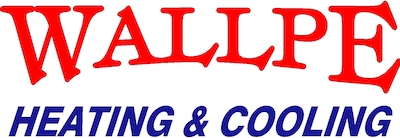
Did you perform a double take when you viewed your last energy bill? Although high energy bills can be the end result of extreme weather conditions, persistently high bills can also signify an inefficient HVAC system or your home is using too much energy because of other means, such as drafty windows or insufficient insulation.
One of the easiest ways to figure out whether your home is wasting energy is by hiring a home service specialist to carry out a home energy audit, also known as a home energy assessment. Keep reading to find out more about home energy audits, including what they are and their advantages.
What Is a Home Energy Audit?
An energy audit is a custom inspection of how much energy your home uses and whether – and where – your home may be losing or wasting energy. An inspector will go through past energy bills in the course of an energy audit to find out where energy is being consumed and how much.
The overall goal of an energy audit is to help homeowners save money on their energy bills by recommending energy-efficient improvements, which might include exchanging your current HVAC system, installing new insulation, plugging up leaks, or replacing drafty windows.
Over the course of the energy assessment, the auditor also completes an inspection of the outside and inside of your home. The auditor completes a blower door test on doorways, windows and fireplaces to determine if there are air leaks in your home. They’ll also inspect your home’s HVAC system, which also includes the ductwork, the water heater, and the insulation in your attic. Exhaustive assessments may also include inspecting your current lighting system.
Benefits of a Home Energy Audit
It can be hard for the average homeowner to know for certain how efficient their home is versus other similar homes in their community. However, lots of energy companies often supply information about where your home ranks in comparison to similar homes and whether it’s more efficient, about average, or inefficient versus your neighbors’ homes. This is a great starting point to figure out if you need an energy audit performed.
A few of the benefits of a home energy audit include:
Recognizing How Efficient Your Home Is
It’s beneficial to know how efficient your home is and where you’re consuming the most energy. For example, if your ducts are leaking air, it can cause a sizable increase in your energy bills and excessive wear and tear on your HVAC system since it has to stay on longer to fully heat or cool your home.
Making Energy-Efficient Updates
An energy audit should expose where you need to make energy-efficient improvements to cut back on energy and lower utility bills. This may include replacing worn weatherstripping or installing a new energy-efficient furnace.
Enhancing Health and Safety
Permitting air to slip into your home via doors and windows, or due to a lack of insulation can cause excessive moisture to form, which could negatively affect your home’s humidity levels or lead to mold. This can exacerbate health problems, particularly for people dealing with asthma or allergies.
Raising Your Home’s Retail Value
Energy-efficient homes are preferred by homebuyers. You can sell your home more quickly or for more money by telling potential buyers that it’s energy efficient.
How to Complete an Energy Audit of Your Home
Although performing an energy audit independently will not be as detailed as calling a professional, it’ll offer you a broad idea of how energy efficient your home is. If you don’t discover any problems during the DIY test, then you probably don’t need to hire a professional. Use this step-by-step checklist:
- Review your HVAC system. Leaky ducts can lose as much as 20% of conditioned air, resulting in more expensive energy bills and increased wear and tear on HVAC equipment. If you find leaks, use duct tape to plug them. If your HVAC equipment is old and inefficient, upgrading to a new system can save you a considerable amount on your energy bills. In some cases, it can be better to contact a reputable HVAC company to inspect your system.
- Watch for signs of air leaks. Air leaks on average can increase monthly energy bills by 10 to 20%. Inside, look for air leaks in areas where there is a draft, like along the edge of flooring and along baseboards and electrical outlets. Outside, you can look for air leaks in the home’s foundation, siding and mortar. Plug, caulk or seal any air leaks to save money.
- Inspect insulation. If your home is older, it could mean your insulation is too. If you can see the joists, you likely need more insulation.
- Check ventilation. Ensure that all of your kitchen and bathroom exhaust fans are spinning properly, and inspect for evidence of rot or moisture.
Contact Wallpe Heating & Cooling for a Professional Energy Audit
If you want professional help determining how energy efficient your heating and cooling equipment is, call the HVAC pros at Wallpe Heating & Cooling today. We’ve proudly supported the residents of Greensburg with quality home services for a long time. Contact us today to schedule an appointment.
